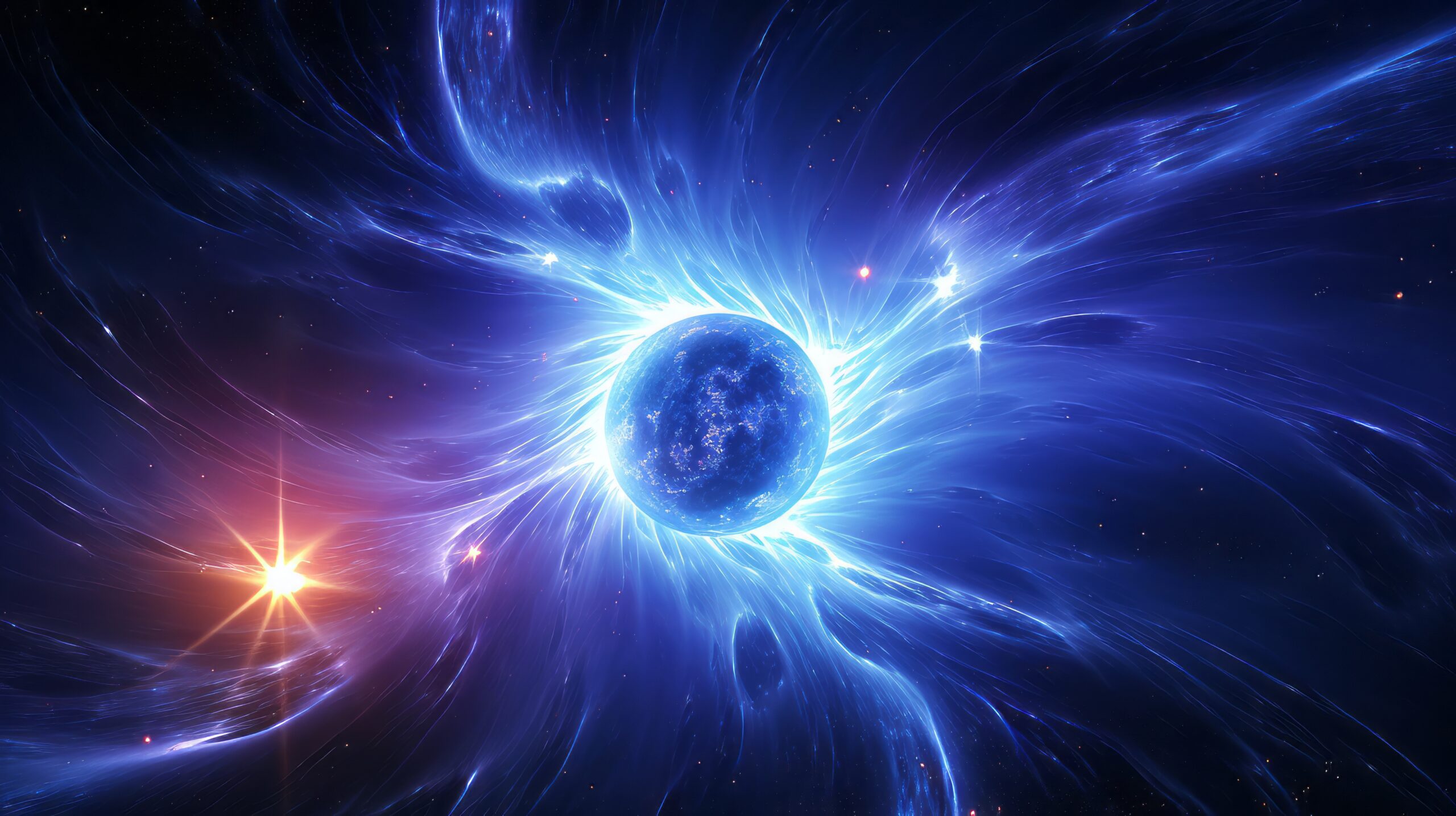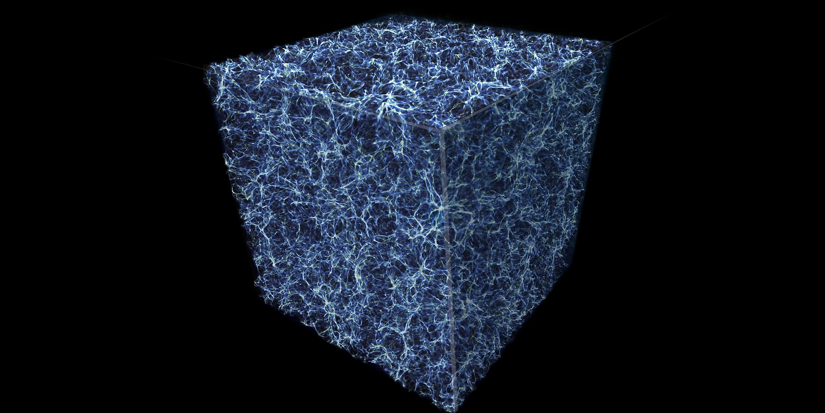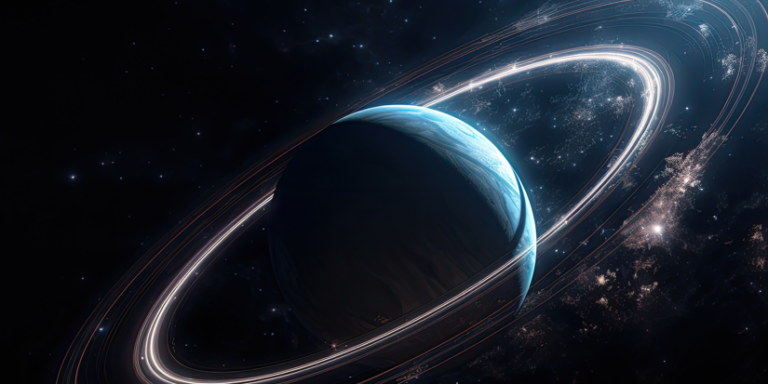
Colorful star in the vastness of space
There are many theories about what happened before the universe was formed. One such theory suggests that the universe was at one point the size of a baseball.
Exponential Expansion at the speed of light
Inflationary cosmology is a theory in physics that proposes a period of extremely rapid expansion of the universe during the first fraction of a second after the Big Bang. This idea was introduced in the early 1980s by physicist Alan Guth to solve several significant problems in the standard Big Bang model, such as the horizon problem, the flatness problem, and the absence of magnetic monopoles. According to inflation, the universe expanded exponentially for a brief moment, smoothing out any irregularities and leading to the large-scale uniformity we observe today. This rapid expansion also stretched quantum fluctuations, which later became the seeds for galaxy formation.
What are the issues with this theory?
One of the most significant implications of inflation is that it predicts a nearly flat, homogeneous, and isotropic universe, which aligns with the observations of the cosmic microwave background (CMB) radiation. The theory also explains the distribution of large-scale structures, like galaxies and galaxy clusters, across the cosmos. While inflation remains a well-supported model, there are still open questions, such as the specific mechanism that triggered and ended inflation, and how it fits into the broader framework of quantum gravity. Nonetheless, inflationary cosmology remains a cornerstone of modern cosmology, helping to explain the early dynamics of our universe.
- The Dark Theory Of Alien Silence: The Berserker Hypothesis
 In summer of 1950 Italian-American physicist Enrico Fermi was casually discussing UFO’s and the possibility of travelling faster
In summer of 1950 Italian-American physicist Enrico Fermi was casually discussing UFO’s and the possibility of travelling faster - How Did The Predators Develop Their Advanced Weapons And Spaceships?
 Before we get started, I had no idea that the Predator race is called the Yautja. It’s something
Before we get started, I had no idea that the Predator race is called the Yautja. It’s something - Objects Are Visiting Us From Alpha Centuri
 Remember when Oumuamua entered our solar system and everybody lost their minds over whether or not it was
Remember when Oumuamua entered our solar system and everybody lost their minds over whether or not it was - The Black Hole In Interstellar Was Built From Actual Equations
 In the hit 2014 film Interstellar the real star of the show was the supermassive black hole known
In the hit 2014 film Interstellar the real star of the show was the supermassive black hole known - Astronomers discover the largest structure in the universe
 Astronomers have found a new contender for the largest structure in the universe. Previously held by the Hercules–Corona Borealis
Astronomers have found a new contender for the largest structure in the universe. Previously held by the Hercules–Corona Borealis - Russian Plasma Engine Will Get Us To Mars In 30 Days
 There has been a major breakthrough in propulsion technology announced last week by the Russian State-Owned Rosatom Corporation
There has been a major breakthrough in propulsion technology announced last week by the Russian State-Owned Rosatom Corporation



